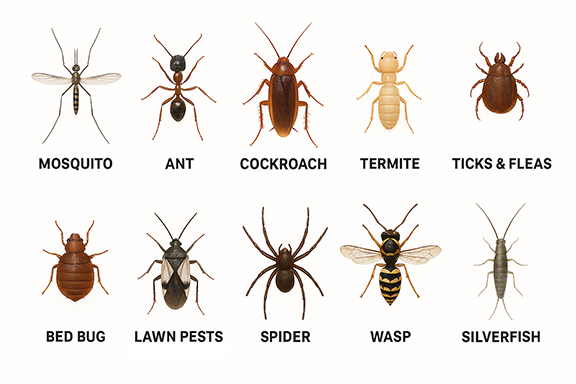Why Florida Has So Many Bugs
If you live in Florida, you’ve probably noticed that bugs never really take a vacation. Thanks to the state’s warm, humid climate and abundant moisture, Florida offers a near-perfect environment for pests to thrive the year round. Add lush vegetation, frequent rainfall, and dense human habitations, and you have a setting where mosquitoes, ants, roaches, termites, ticks, spiders, and more can flourish.
This article will help homeowners and renters identify common Florida bugs, understand their behaviors and health risks, and offer tactics to prevent infestations. And when bugs outmatch your DIY efforts, we’ll point you toward when to call Mira Pest for professional help.
Expect to learn:
- What common bugs roam Florida and their threats
- How to pinpoint what might be biting you
- Practical prevention strategies
- When pest problems warrant calling in experts

